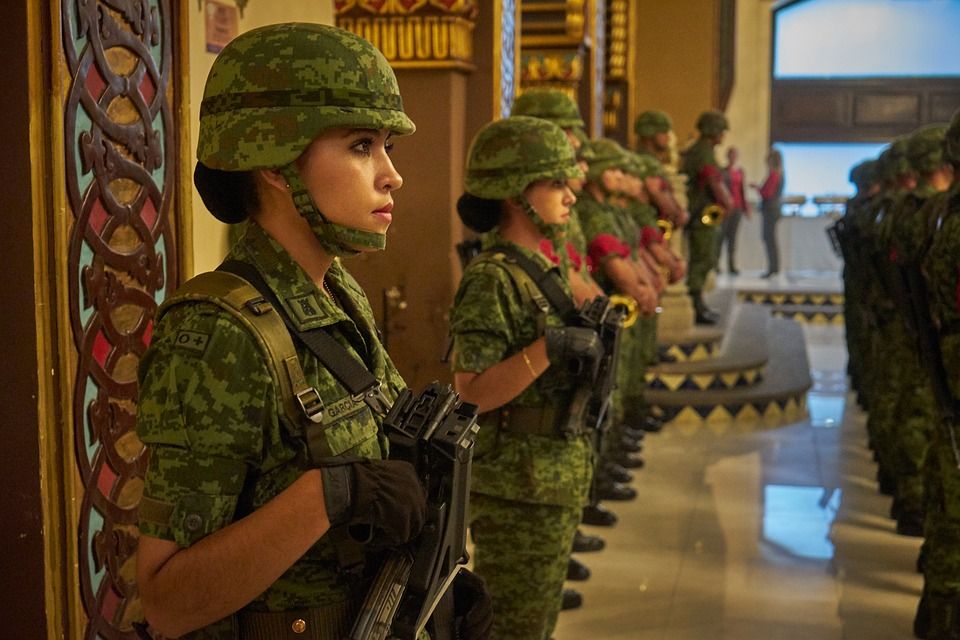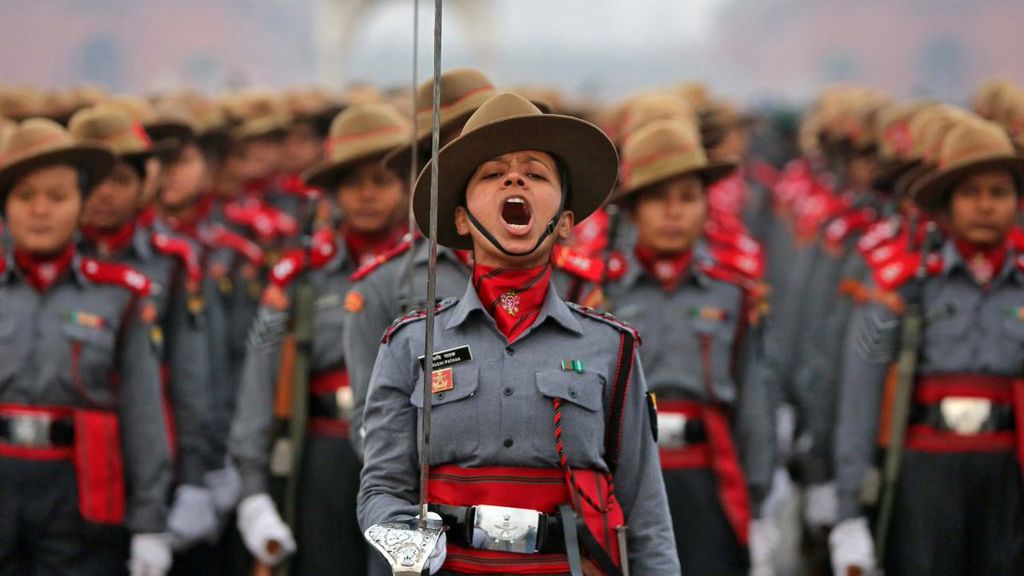Are We Ready For Women Combatants?
May 23, 2019 • 69 views
The December 2012 gang rape and the brutalization of a woman in a moving bus following by an 8-year-old girl being missing from her village in January 2018 and then after a span of seven days the whole nation was shocked on finding her mutilated body. Without any further full stop, India has also witnessed the deadliest terror attack on a convoy of vehicles carrying more than 40 security personnel on the Jammu Srinagar National Highway on 14th February 2019 which have justifiably angered people in India- need to be seen together to take a second look at another, not unrelated, matter.
My preference is to bring in forth the demand for expansion of employment of women in the country’s armed forces from support roles like in administration, communication, and logistics, or as physicians and para-medical stuff to the frontlines, where it is supposed that they are entrusted with actual conduct operations.

A military career involves several hardships, among them rigorous mental conditioning and physical fitness. After all, soldiers are not made in heaven: they have to be separated from the chaff, trained to kill and destroy, their skills honed, their resolve strengthened, their moral built and sustained, their faith in the political and military system shaped and protected and their well-being ensured. Then, and then alone, will the human beings go against their grain to go to any physical and mental limits- including the “supreme sacrifice” of one’s life to defend their beliefs and destroy any perceived threat to their value system.
Training for professional soldiering itself begins with several denial and discipline. Denial of personal privileges and material comforts, denial of going back home at the end of 9 to 6 routine, denial of assured vacations and festival celebrations, denial of freedom of expression by way of publicly airing one’s political views, denial of free social interaction and above all denial of choice in matter of postings and nature of duties.
General Bipin Rawat, Chief of Army Staff, spoke in the latest interview about why the Indian Army is not yet ready for female fighting officers. "There are orders that we have to cocoon her separately. She'll say someone is peeping, so we'll have to give her a sheet" to "I'm making her a commanding officer. She's commanding a battalion. Can that lady officer be away from her duties for six months? Will, I put a restriction on her to say you won't get maternity leave in that command tenure?
First of all, why would a lady officer complain regarding men peeping into her cabin/room, until and unless someone is really peeping into? And if someone is really peeping inside a woman’s space without her consent or permission, then it's not the woman’s problem; it's a retardant of discipline. And as any leader would agree, undisciplined troops are a nightmare for any commander. Taking the same argument forward, Gen. Rawat said that since a majority of Indian soldiers especially people below the rank of officer, who still come from villages and other rural areas, they will have a problem taking orders from a woman commander.

I can discover two shortcomings created with this kind of excuse. One, the soldiers are being taught to follow their rank superiors ' instructions. They are not only taught to take instructions from a' masculine' superior. Rank is what counts in the army, so it's worn on the shoulders. Currently, if qualified soldiers have decided to appear on the breast of their officer rather than the rank on their shoulder, it also reflects the breakdown of control, besides being a characteristic drag.
Second, males from rural regions have been taking orders from females for many centuries now, whether or not as safety guards, national assistance, and office staff, and even in the army. After all, there are already female officers serving in the army besides fighting. They don't offer instructions from their juniors and jawans? And are not these commands followed?
A professional soldier is usually guided by a strict code of military conduct that touches her domestic concerns, attire and social behavior, and even social contracts such as marriage and other social commitments, and often impinges. On the social level, aspiring women fighters will have to deal with issues such as marriage to a husband who will care for home, children, schooling, illness, and parents and in-laws well-being. It is obvious that her odd working hours will not leave her as a matter of routine with the option of taking care of all the necessary domestic chores.
Not for a moment am I suggesting that women cannot stand up to the rigorous of their chosen professions. Indeed the long list of Prime Ministers, aviators, mountaineers, physicians, space explorers, corporate heads and sportsperson are the proof why women are still in an equal space to their male counterparts. But the big question is will the nation tolerate torture, disfigurement and maybe rape of a woman combatant at the hands of enemy forces? What of the “honor” and “modesty” of a woman combatant or a commander so caught, captured and mistreated by the enemy? Will society accept back a woman soldier so violated?
India is a society that lays great premium on the honor of her womenfolk, we even tie it to the honor of our families. To paraphrase a gang rape survivor, we judge a woman’s virtue by the status of her vagina. We still burn women for dowry or con them into prostitution.
As the saddest matter of fact, our law enforcement machinery and the judiciary are still reluctant, lethargic at its best in curbing the rash of atrocities against our womenfolk by our own men. In such a climate we need to look inward before we can address this clamor for women in frontline combat roles in the armed forces.
